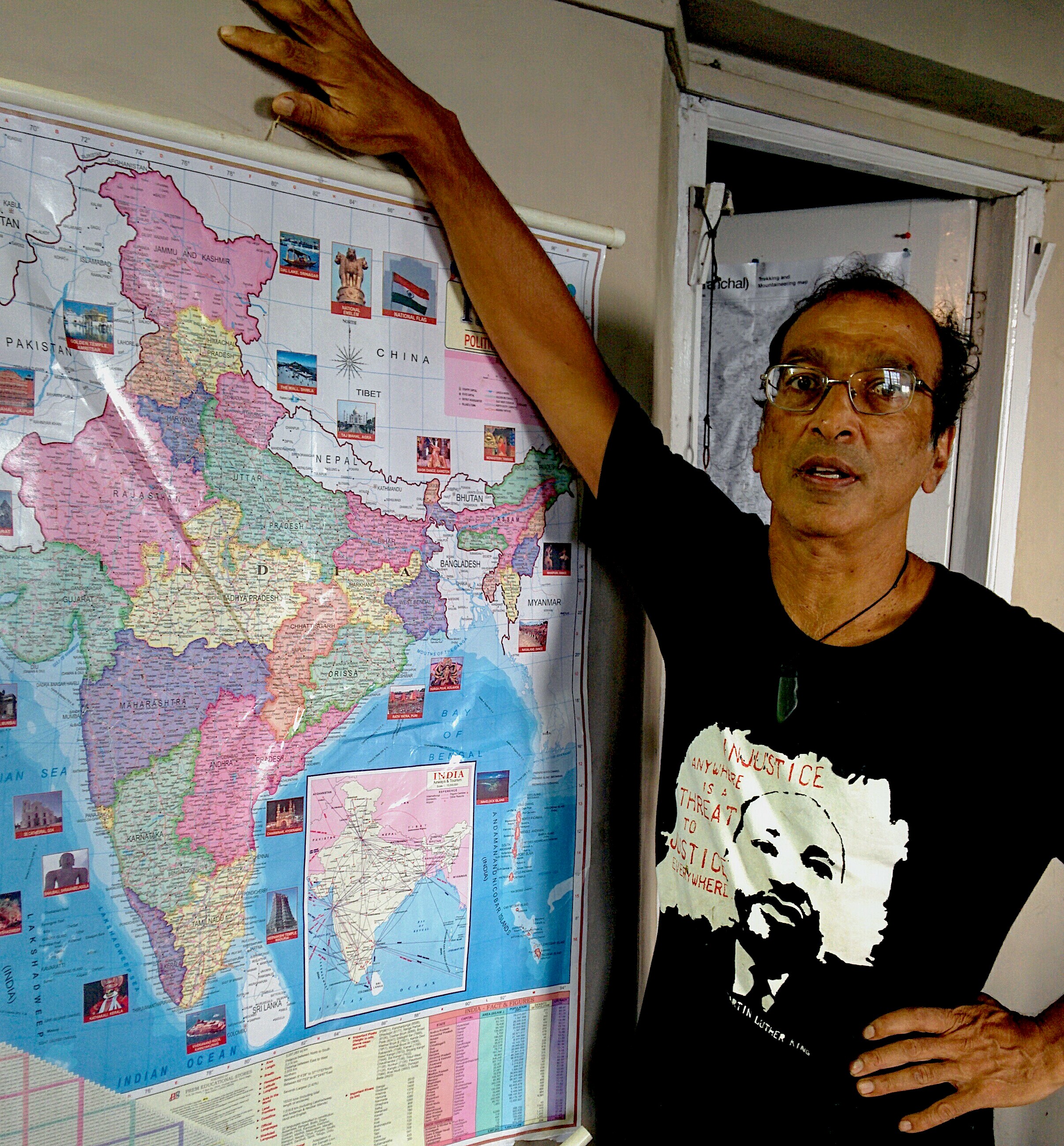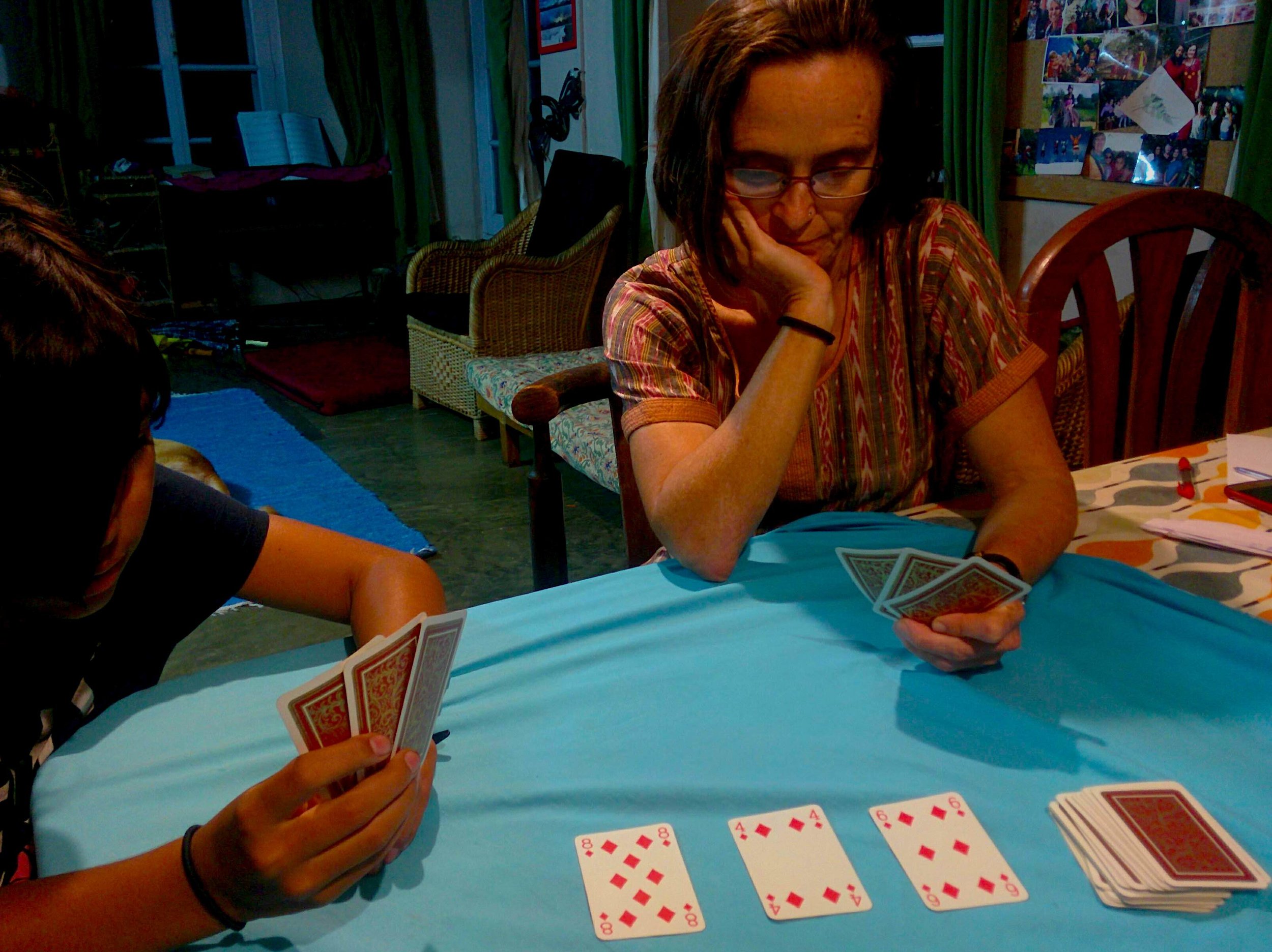A central tenet of modern economics – modern life in fact- is rational self interest as the basis of behaviour. Politicians assume it, it underpins economics… but is it a valid development tenet?. I say "NO!- rational individual self interest is not rational."
Would you hunt stags with a friend high in the hills or chase rabbits in the river flats?.- Hopkins Valley , New Zealand.
A famous illustration is "The Stag Hunt" (see https://en.wikipedia.org/wiki/Stag_hunt ). (I've slightly adapted this version.) Two hunters can hunt rabbits with near certainty of success (payoff 1) or stags with 50% chance of success. The game assumes they make independent decisions and do not communicate. A stag yields 8 times the meat of a rabbit ( payoff 8), but because there's only 50% chance of success that's halved, giving a payoff of 4. However a hunter cannot bag a stag alone. To have that 50% chance of a stag both hunters must leave the rabbit infested river flats and commit to a day in the hills. If they are successful they share the meat- 4 divided by 2 yields 2 units each- still twice as good as rabbit hunting. (and venison tastes much better than rabbit-Ed.) However if one hunter commits to stags in the hills but and the other stays low chasing rabbits the stag hunter comes home empty handed and the other brings home a little rabbit. This matrix shows payoffs for the hunters' choices:
Hunter 2’s choice
Stag Rabbit
Hunter 1’s Stag 2/2 0/1
choice Rabbit 1/0 1/1
The "payoff matrix" shows that if both hunt stags they each get on average 2 units of meat (2/2). If hunter 1 goes to the hills to hunt stags but hunter 2 chooses to stay low hunting rabbits hunter 1 gets 0 and hunter 2 gets 1 unit of meat - (0/1) etc.
Imagine a hunter stalking rabbits, safe in the knowledge he will bring home a little meat. If he changes, deciding to chase stags in the hills he will be worse off if the other continues hunting rabbits. It's a Nash Equilibrium-a situation in which any independent behaviour change leads to worse payoff for that individual (For the Nash Equilibrium see .https://en.wikipedia.org/wiki/Nash_equilibrium ) Its a stable situation- even though double the payoff is available If they commit to a stag hunt together humans, being humans, will keep hunting rabbits. It needs a group (here a group of two) decision to behave differently (hunt stags) to cash in that better payoff. Here's a second Nash Equilibrium in this system- if they can start hunting stags together neither will have an incentive to change. Going back to rabbits is going back to a smaller payoff. Sucking the marrow out of venison bones after eating back steaks becomes culture- once they taste success hunting together they'll keep doing it. The nub of all this is the hunter’s ‘rational’ optimum is dependent on another's (unpredictable) behaviour, which he does not control. Its irrational!
What has all this got to do with development? Well, I reckon, sustained positive behaviour change is the holy grail. Development is about groups of people moving to optimal behaviour for their context. It must involve collective behaviour of groups of people, overcoming individuals' fear of reduced 'payoffs' to get to group gain. In the big picture Individual rational self-interest only has meaning when nested in group self interest. This is true at family, village, nation and global levels. I use this model not to dissect its specifics rather firstly to illustrate how easily humans can be stuck in non-optimal equilibria and offer a definition of development as "finding ways from non-optimal to better behavioural equilibria". The art of development is to understand the hurdles to this change and overcome them. To improve community nutrition a standard approach might be to. set up rabbit farms. Rather than focus on such outputs I would focus on attitudes (e.g. attitude to risk and trust), behaviour (rabbit or stag hunting, fairness in dividing spoils etc) and critically relationships (communication and trust between hunters). The community's protein is out there in the hills, the locus of development is the human complexities between the hunters and that protein.
Development is littered with groups of humans stuck in sub-optimal equilibria, where individuals won't change behaviour for fear of reduced payoffs. Climate change is an obvious example – we can’t stop cooking ourselves because any nation's independent decision to cut emissions only leads to a weaker national economy and the planet continues warming anyway as long as other nations don't change. For an environmentally sustainable future all we need is trust that everyone will cut emissions. Its like trusting my co-hunter to meet me up in the hills. But that's too hard for humanity. Even knowing the answer does not help us out of our sub-optimal Nash Equilibrium. On a smaller scale Indian villages mired in caste are similarly sub-optimal, equally hard to change....
Here's one of development's many complex dimensions -what other humans do is critically important... and unpredictable. Groups of people moving from sub-optimal equilibria to more beneficial sustained behaviours (aka culture) always involves multiple, interacting behavioural algorithms Thus its intrinsically complex. Therefore development workers need situation analysis, skill with people and nuanced communication to handle slippery substances like trust, inclusion and participatory processes. We seldom play with clean, hard rational self interest. But that's just what makes development challenging and fun... like hunting stags.
More meat than two rabbits!
Here’s John Nash deriving his equilibrium hunting beautiful women in the movie “A Beautiful Mind” https://t.co/Yo2Z6KtoyF
Or for a view from the dark side here is a World Bank infographic accepting behaviour is seldom rationally derived: http://www.worldbank.org/en/news/feature/2014/12/02/infographic-mind-society-and-behavior
And a link to World Bank thinking on Mind Society and Behaviour in the 2015 World Development report: http://www.worldbank.org/en/publication/wdr2015












